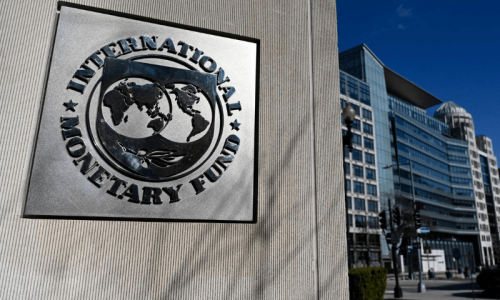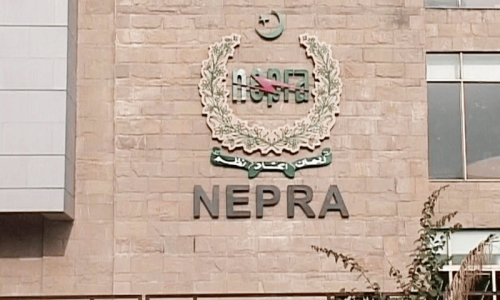Finance Minister Muhammad Aurangzeb on Tuesday confirmed that discussions between the International Monetary Fund (IMF) and Pakistan for the first biannual review of the $7 billion programme had begun, adding that the country was “well-positioned” for the talks.
Pakistan and the IMF had reached a three-year, $7bn aid package deal in July, with the new programme set to allow the country to “cement macroeconomic stability and create conditions for stronger, more inclusive and resilient growth”.
A nine-member mission from the IMF has began its first biannual review of Pakistan’s $7bn Extended Fund Facility (EFF).
“They are here. We will have two rounds of talks, first technical and then policy level,” Aurangzeb confirmed.
“I think we are well-positioned [for the review],” he added.
The IMF delegation, led by Nathan Porter, will hold discussions with Pakistani authorities for 10 days from March 3 to 14, assessing the country’s compliance with quantitative performance criteria, structural benchmarks and indicative targets under the 37-month programme.
A senior government official involved in preparations for the IMF review said there were some technical slippages for certain given deadlines, but they had been overcome with some delays — within weeks or a month.
The most critical weakness observed so far had been the revenue shortfall against programme targets, the official said. But he hastened to add that this had been more than compensated through a higher-than-targeted primary budget surplus and greater-than-estimated revenue-to-GDP ratio owing to better receipts from non-tax revenues like central bank profit, petroleum levy, telecom profits, etc.
The ongoing 37-month EFF programme consists of six reviews over the life of the bailout, and the release of the next tranche of approximately $1bn will be contingent on the success of the performance review.
Just before the IMF mission’s visit, the lender reiterated last week that its programme aimed to raise Pakistan’s notably low tax-to-GDP ratio by 3pc of GDP while improving the fairness and efficiency of the tax system by broadening the tax base and improving tax compliance.
Three key areas of focus include: expanding direct taxes by bringing retailers, property owners and agricultural income into the tax net; rationalising personal and corporate income taxes by reducing exemptions and streamlining rates in the general sales tax system; and enhancing Federal Excise Duty coverage and eliminating tariff exemptions to increase customs revenue.
In 2024, the salaried class became the third-largest income tax contributor, trailing banks and petroleum but surpassing textile exporters.
A separate IMF technical mission was in the country last week to discuss around $1bn in climate financing on top of the EFF.












































